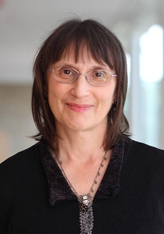If ever there were a person for whom Psalm 145 — the Ashrei — was written, it is Avraham. Ashrei begins: “Happy are they who dwell in your house” and then continues through the Hebrew alphabet to list God’s attributes and blessings bestowed on us and our reasons for giving thanks.
This is not to say that Avraham’s life, and especially that portion of his life described in Lekh-Lekha, was uniformly happy or easy. At the start of the parashah, Avraham is still Avram, suddenly ordered by God to take himself out of his father’s house and embark on a journey to an unknown land. All this based on a promise that God will bless him and his descendants and though them all people on earth.
The first stop is Canaan, the land that will be promised to Avram’s descendants. But Avram quickly passes through, almost as if it were no place special. Avram’s travels prefigure those of his descendants, including encounters with Pharaoh in Egypt and through the Negev and to the north. These are no easy journeys. They include battles, rescue missions, and tricky negotiations with kings, along with disturbing family disputes. Through them all, Avram demonstrates that God has chosen well. Avram values people over wealth and rises to every challenge. So it is that by the end of the parashah, God has renamed him Avraham, because he will be the father of many.
Avraham’s life in this parasha reflects the key points of the Ashrei, and examining the events in Lekh-Lekha against the Ashrei adds a dimension to its events. Just as the Ashrei is about abundance and gratitude, God gives Avraham wealth, power, a destiny, and a mission. In turn, Avraham shows gratitude for what he has and finally commitment to his destiny by circumcising himself and all the males in his household, a contract cut in flesh.
The importance and meaning of the Ashrei is often overlooked. It can seem like just one more Psalm. But the Ashrei was the first of Psalms recited as part of the service. Even when others were later added to eventually became the pesukey dezimrah, the Ashrei played a special role. The Talmud says we are to recite Ashrei three times a day. And during that recitation, we must pay special attention to the verse potey’akh et yadekha, which in the Reconstructionist Siddur is translated, “Providing with your open hand, you satisfy desire in all life.” If this verse is not said with the appropriate kavanah — focus, concentration, and intentionality — it must be repeated.
The reference to God’s open hand might be mistaken for a petition for wealth, and certainly in this parashah, Avraham acquires great wealth and power.
But of far more importance is that, although he accumulates wealth and power, Avraham can walk away from them when that is the correct choice. Though he knows deep sorrow and loss, he never exhibits the sense of grievance shown by his grandson Jacob, who many years in the future will complain to Pharaoh of his 130 years of life: “My years have been few and hard.” Instead, Avraham’s death is the occasion that brings together his sons Ishmael and Isaac, healing the loss of his oldest son in Lekh-Lekha. As a result of the way he lived his life, Avraham is truly blessed and truly rich. As the Talmudists said: “Who is rich? Those who are happy with their portion.” (Pirkey Avot 4:1)








